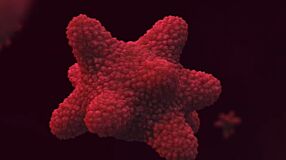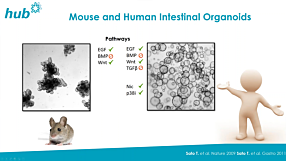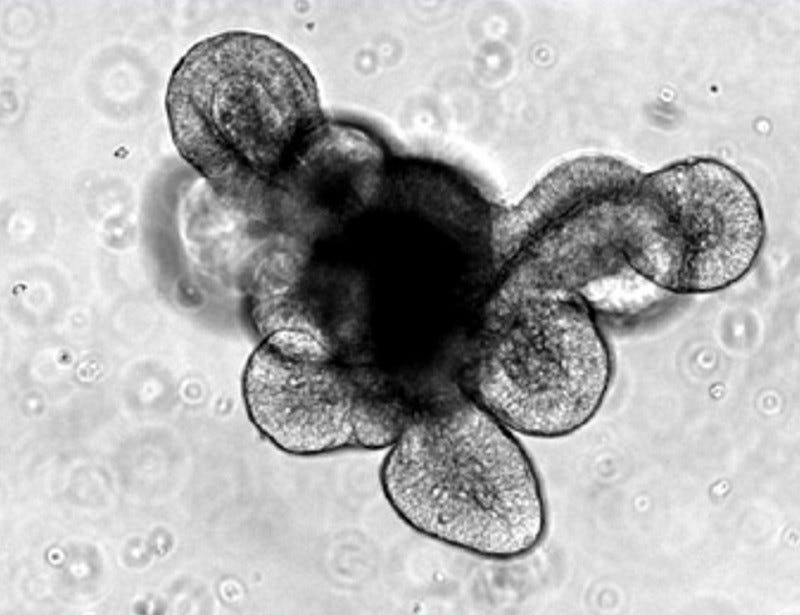Modeling Host-Microbe Interactions Using Human Intestinal Organoids
A common challenge to studying host-microbe interactions is the lack of optimal in vitro culture systems to recapitulate in vivo infection. In this virtual paper presentation, Dr. Devanjali Dutta discusses her research using human intestinal and lung organoids to study Cryptosporidium infection. Cryptosporidium is a protozoan parasite, a leading cause of diarrhea, and a major cause of child mortality worldwide. Dr. Dutta describes how she—and her colleagues in the lab of Dr. Hans Clevers—infected intestinal and lung organoids derived from healthy human donors with Cryptosporidium. In their paper*, organoids are presented as a physiologically relevant in vitro model to study Cryptosporidium and other pathogenic infections.
Dr. Devanjali Dutta is a Postdoctoral researcher in the lab of Dr. Hans Clever at the Hubrecht Institute.
*Heo I, Dutta D et al. (2018) Nat Microbiol. 3(7):814–23.
A common challenge to studying host-microbe interactions is the lack of optimal in vitro culture systems to recapitulate in vivo infection. In this virtual paper presentation, Dr. Devanjali Dutta discusses her research using human intestinal and lung organoids to study Cryptosporidium infection. Cryptosporidium is a protozoan parasite, a leading cause of diarrhea, and a major cause of child mortality worldwide. Dr. Dutta describes how she—and her colleagues in the lab of Dr. Hans Clevers—infected intestinal and lung organoids derived from healthy human donors with Cryptosporidium. In their paper*, organoids are presented as a physiologically relevant in vitro model to study Cryptosporidium and other pathogenic infections.
Dr. Devanjali Dutta is a Postdoctoral researcher in the lab of Dr. Hans Clever at the Hubrecht Institute.
*Heo I, Dutta D et al. (2018) Nat Microbiol. 3(7):814–23.
Publish Date:
January 14, 2019
Request Pricing
Thank you for your interest in this product. Please provide us with your contact information and your local representative will contact you with a customized quote. Where appropriate, they can also assist you with a(n):
Estimated delivery time for your area
Product sample or exclusive offer
In-lab demonstration
By submitting this form, you are providing your consent to STEMCELL Technologies Canada Inc. and its subsidiaries and affiliates (“STEMCELL”) to collect and use your information, and send you newsletters and emails in accordance with our privacy policy. Please contact us with any questions that you may have. You can unsubscribe or change your email preferences at any time.








